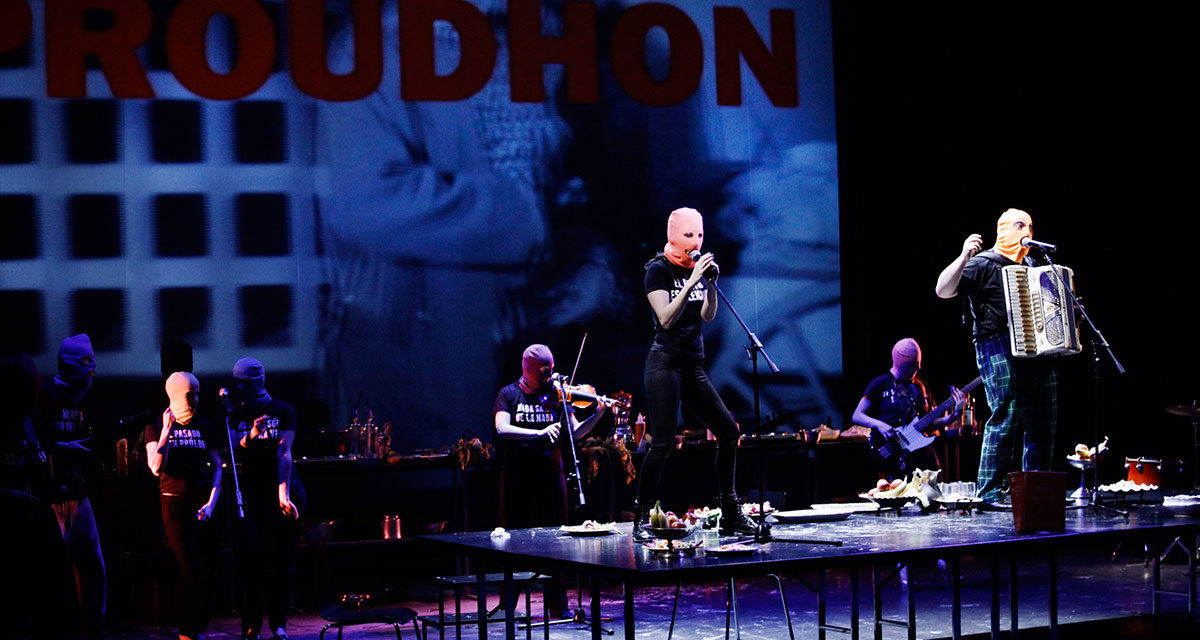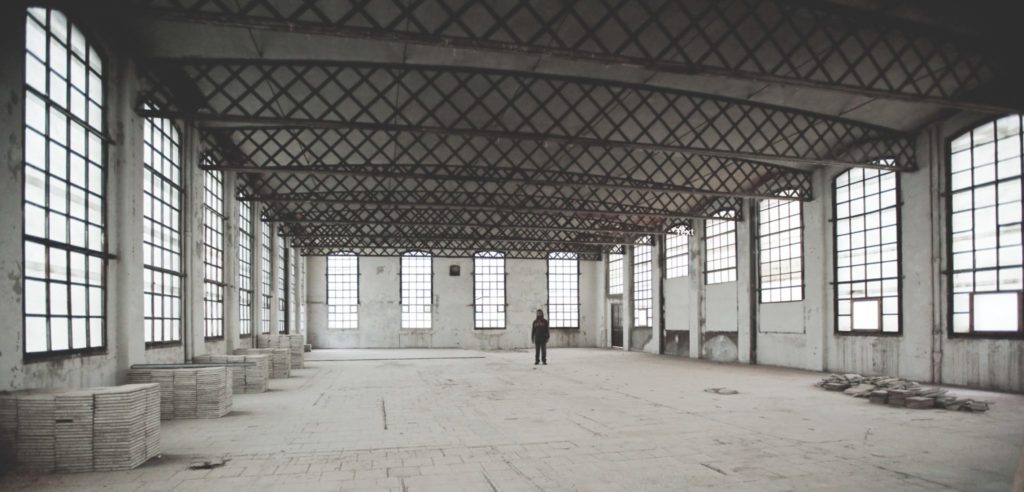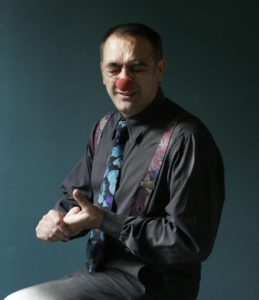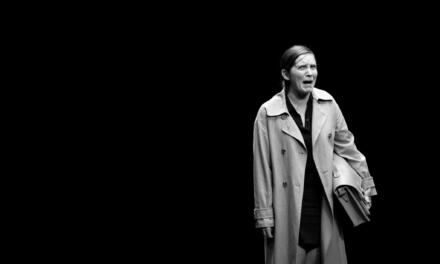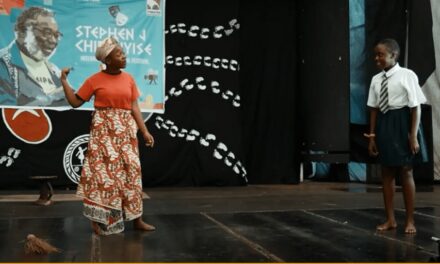The fifth edition of TABA, organized by TIMBRe4 and the Girona High Season Festival, a classic of the Argentine summer, will take place in Buenos Aires February 4 through 16. The Festival has already hosted more than 20 companies, national and international, and has drawn more than 20,000 spectators since its first edition in 2013. This new edition will present works from Spain, Perú, Chile, Uruguay, and Argentina. Two weeks of theatrical celebration will include an international and national program, meetings for conversations and dramaturgy, workshops, and the already classic and expected Tournament of Transatlantic Dramaturgy. Once again, Catalan theatre and Latin American theatre will return to the Boedo neighborhood, where TIMBRe4 is located.
Claudio Tolcachir, director and founder of TIMBRe4, stated:
“We are happy to celebrate a new meeting between Buenos Aires and Catalonia. In a world that is isolated, we choose to meet and to fight. We gather strength and we do it through art; in order to grow we mix our cultures.”
From the north of the Iberian Peninsula comes Oscar Muñoz with Night Just Before the Forest, by Bernard-Marie Koltès, which has been recognized as a masterpiece: a one-man show constructed as a collage of non-psychological acting and movement, in which the actor is asked to devise a presence of another – a non-existent strange in the night.
Pep Tosar will delight the Buenos Aires scene with his performance in The Story of Mr. Sommer, by Patrick Süskind. The Catalan press stresses:
“The variety of styles, but above all the ability to concentrate tension and attention in moments of intimacy, allowed Tosar to have the audience in his pocket from the very first minutes.”
The third Catalan proposal is Acorar, with text and interpretation by Toni Gomila. The piece is a reflection on the people’s collective identity, about what defines them, and what makes our community continue to exist. Applause and prizes have accompanied Gomila’s one-actor show through Baleares, Catalonia, and Valencia, among other places.
From the south of the Iberian Peninsula comes José Antonio Lucía with Alacrán, from Extremadura. The work presents a character who reveals his story between the “zambra” (a Gypsy dance) and the pain in pilgrimage communion with the public; this is attained through a series of characters, who surround him, judge him.
Galician actress Chusa Perez de Vallejo, along with Maru Méndez and Daiana Silver, will also be part of the Festival, with a micro-theater show created by the Listening Theatre (Teatro de la Escucha); the piece develops a vision of the plunder by the great world powers of the African countries, without losing poetics, depth, and sensitivity to the subject.
The Company of Physical Theater, from Perú, and its work The Gifts, by Federico Abril and Fernando Castro, will also be part of the Festival. Diego Cabello, Eduardo Cardozo, and Miguel De la Rocha will be in charge of the performance. Using the language of masks, acrobatics, and clowning, the scenes present us with the daily life of a family that debates between the demonstrations of love that machismo allows and the daily violence of the relationships between family men.
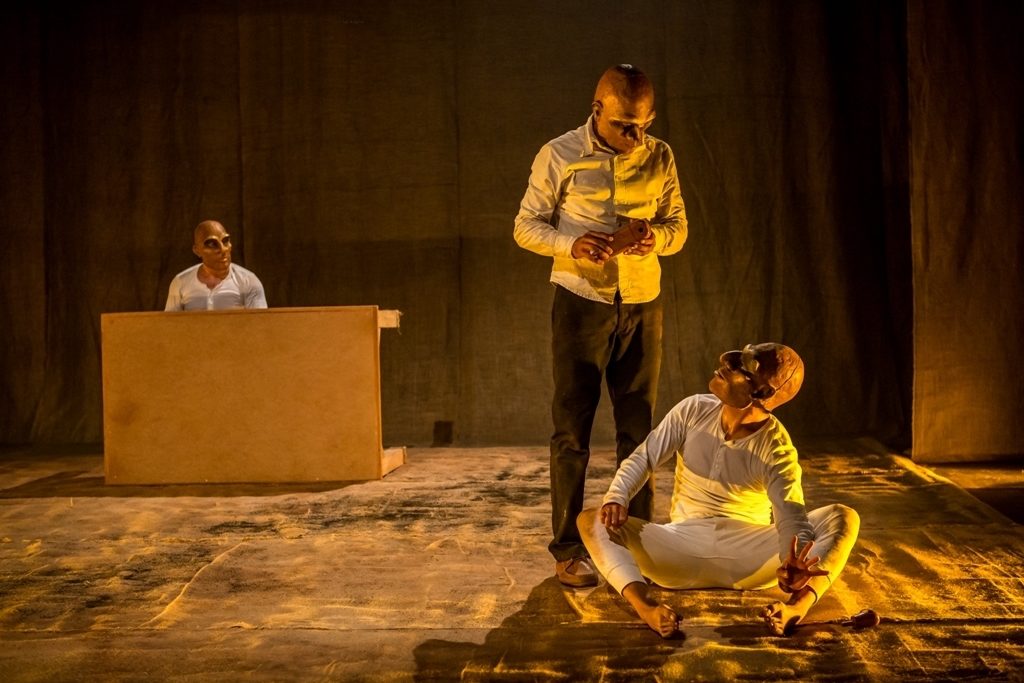
The Gifts by Federico Abril and Fernando Castro, The Company of Physical Theater from Perú. Press Photo
Chile will be part of the Festival with three very different artistic proposals. In Acceso, by Pablo Larraín and Roberto Farías, an urban gladiator reveals deep signs of pain and enjoyment as part of life, through an atrocious but poetic language. A Chilean critic stresses: “Access has one of the most forceful interpretations of recent years. Roberto Farías’s histrionics fascinate and surprise.”
Another Chilean proposal will come from the Monomujer Company: Migrants, Theater for One Spectator. Under the general direction of Luz Moreira, they will present a small-format theatrical spectacle consisting of three pieces (Negra, Gallo viejo, and Conventillo). Each piece approaches the theme of migration in the city of Buenos Aires from different ambits and times. The general narrative is composed of the spectator’s journey through each of the cabinets distributed in TIMBRe4. Finally, Felipe Rubio will present This Was Going to Be Called Chekhov Project (Work Sin Progress), an artistic personal investigation and experimentation that ponders the question of how much fiction is in our lives.
From Uruguay will come Litost (The Frustration), from Jimena Marquez, a theatrical piece that investigates the most specific feelings of the human soul, centered in the feeling of “lítost,” a word of Czech origin that refers to the moment in which the human being becomes aware of its own decadence.
Finally, the local proposal from Buenos Aires will be the charge of the interdisciplinary artist Emilio García Wehbi, distinguished for working with the crossing of scenic languages and the confrontation of established aesthetic categories. Wehbi will present King Lear, a contemporary reading of some of the topics that Shakespeare unveiled in his writings.
In addition to the regular program for this new edition of TABA, there will be the Transatlantic Dramaturgy Tournament, in which Catalan and Argentine authors will read their texts and the public, by popular vote, will determine the winner.
With more creations, more experiences, and more artistic content, TIMBRe4 begins its 2017 theatrical season with the meeting that celebrates the fusion of proposals and artistic exchange between Chile, Uruguay, Perú, Spain, during the Argentine summer.
Reposted from an original article with permission of the author.
Translated by Lola Proaño Gómez
This post was written by the author in their personal capacity.The opinions expressed in this article are the author’s own and do not reflect the view of The Theatre Times, their staff or collaborators.
This post was written by Marisol Cambre.
The views expressed here belong to the author and do not necessarily reflect our views and opinions.

